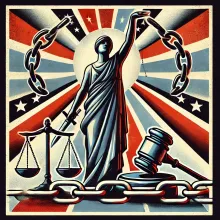Jury nullification, the act of jurors acquitting defendants despite clear evidence of legal guilt due to perceived injustice of the law, has deep roots in American history. Originating from English common law, it was notably exercised in the 1735 trial of John Peter Zenger, where a jury acquitted him of seditious libel, reinforcing freedom of the press.
During the antebellum period, Northern juries frequently refused to convict individuals under the Fugitive Slave Act of 1850, reflecting moral opposition to slavery. Similarly, during Prohibition, many juries acquitted defendants charged with alcohol-related offenses, signaling public discontent with such laws.
While modern courts often discourage jury nullification, it remains a testament to the jury's role in balancing legal directives with societal values, serving as a check against potential governmental overreach.
